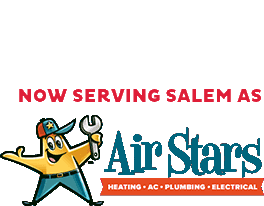Drain Cleaning
How often should I have my drains cleaned?
Arrange for drain cleaning annually to keep your plumbing system in good shape. Yearly cleanings suffice for most systems, but high usage, slow drainage, unpleasant plumbing odors, and other signs may suggest a need for more frequent drain cleaning.
Can I use store-bought drain cleaners?
Store-bought drain cleaners may temporarily remove minor clogs, but they often contain harsh chemicals that corrode plumbing equipment and pose health hazards. These products also don’t address underlying issues, such as build up or significant obstructions, and won’t prevent recurring clogs.
What are the signs that my drain needs cleaning?
Signs that your drains need cleaning include:
- Slow drainage
- Unpleasant odors from organic debris
- Back-ups in one or multiple drains
- Gurgling sounds
Leak Detection
How do I know if I have a hidden water leak?
Leaks can hide beneath flooring, behind walls, and in other obscured areas and cause water damage and other problems if left unaddressed. These red flags may signal leaks in your plumbing system:
- Musty smells
- Mold growth
- High water bills
- Water stains
- Damaged structures
Can you detect leaks without damaging my walls or floors?
Yes. Thermal imaging detects temperature variations from water leaks, and acoustic detection uses sound waves. Video camera inspection uses a specialized camera that feeds into pipes and provides both live and recorded feeds. Analyzing this footage allows plumbers to identify underlying problems, such as invasive tree roots, sludge buildup, and more.
What should I do if I suspect a water leak?
If you notice a water leak, contact a professional plumber to arrange for inspection and repair. Note visible damage or other evidence of leaks. If the leak is significant enough, your plumber may recommend turning off the main water supply to limit further damage.
Piping and Repiping
How do I know if my home needs repiping?
Repiping your home may be necessary if your plumbing system shows these signs:
- Frequent leaks or pipe bursts
- Rusty or discolored water
- Fluctuating water temperatures
- Inconsistent water pressure
- Corroded, cracked, or deteriorated pipes
What materials do you use for repiping?
Depending on your plumbing system, plumbers may use cross-linked polyethylene piping, which is durable, corrosion-proof, and freeze-resistant. Other material options include copper and chlorinated polyvinyl chloride.
How long does repiping take?
Repiping can take anywhere from a few days to several weeks. Timelines for repiping vary depending on your home’s size, number of fixtures, accessibility, and the size and experience of the plumbing team.
Excavation Services
What is excavation plumbing?
Excavation plumbing involves digging to access underground pipes for repair or replacement. Plumbers dig trenches and tunnels throughout the property to expose pipes from the top and bottom.
When is excavation necessary?
Excavation for plumbing is necessary for projects that can’t tolerate less invasive methods, such as trenchless pipe repair or hydrojetting. In general, plumbers avoid excavation since it’s more labor-intensive and disruptive than other methods and reserve it for jobs involving major damage, fragile or aging pipes, or environmental concerns.
How long does an excavation service take?
Plumbing excavation takes between a few days to several weeks. The actual time required for excavation depends on soil conditions, the scale of repairs or replacements, the size of the plumbing team, and other factors.
Tankless Water Heaters
What are the benefits of a tankless water heater?
Tankless water heaters offer numerous potential advantages, including:
- Energy-efficiency
- Cost savings.
- Low footprint
- Indefinite hot water
How long does a tankless water heater last?
Tankless water heaters last between 15 and 20 years, depending on its quality, usage, and other factors. Thorough and consistent maintenance can prolong the lifespan of a tankless water heater.
Can a tankless water heater work in a large home?
Tankless water heaters provide similar benefits to large homes as they do in smaller spaces. Factors that influence their suitability include home layout, number of fixtures, usage. In large homes, more than one water heater may be needed to meet demand.

